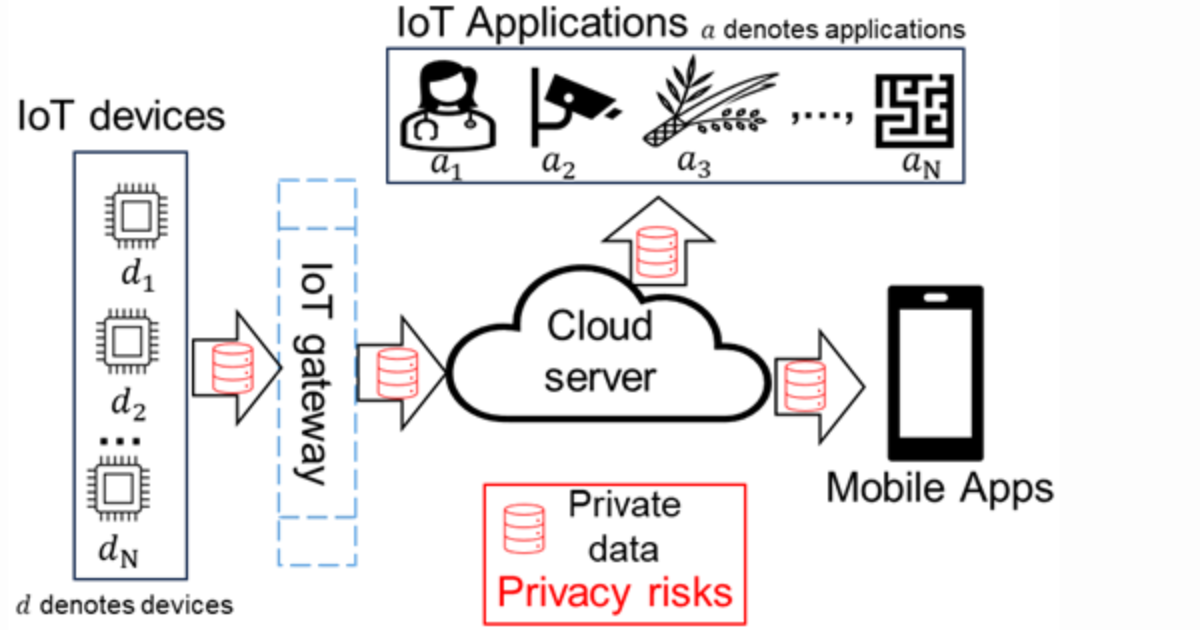Privacy Challenges and Solutions in the Internet of Things
Topic Information
Dear Colleagues,
The Internet of Things (IoT) is a rapidly growing network of interconnected devices, such as sensors, wearables, vehicles, and appliances, embedded with software, sensors, and connectivity to collect and exchange data over the internet. These devices enable a variety of services such as real-time monitoring, smart decision-making, automation, and surveillance in various domains such as smart homes, healthcare, agriculture, smart cities, and industrial systems. Despite the numerous benefits of this seamless connectivity, IoT also introduces significant privacy and security challenges. IoT devices are often deployed in open environments with the least defense mechanisms, making them easy targets for attackers. Also, the lack of standardized security/privacy protocols across vendors leads to inconsistent protections. As IoT devices mostly collect sensitive personal data, such as health readings, location, spatio-temporal activities, and daily habits, they increase the risk of data breaches and unauthorized profiling. Improper handling of IoT data can lead to sensitive information disclosure, prediction of sensitive attributes, unauthorized profiling, revelation of preferences/habits, etc. Vulnerabilities in device firmware, which often go unpatched, can be exploited by attackers, while poorly designed encryption practices expose data to interception during transfer. Addressing these issues requires robust privacy-preserving methods, regular software updates, encrypted communications, lightweight privacy-preserving solutions that can operate on resource-constrained IoT devices, and adherence to privacy-by-design principles to ensure privacy-preserving and trustworthy IoT ecosystems. We invite researchers/practitioners to contribute novel methodologies/solutions for enhancing privacy and security in the IoT ecosystem from any perspective. This topic will attract high-quality papers on privacy and security solutions in the IoT ecosystem from leading experts in the field.
For this Topic, original research articles and reviews are welcome. Research areas may include (but are not limited to) the following:
- Federated learning based methods for privacy enhancement in IoT ecosystems;
- Lightweight encryption methods for protecting IoT data;
- Differential privacy-based methods for IoT data security;
- Anonymization methods for optimizing privacy–utility trade-off in IoT data handling;
- Privacy protection methods for IoT data analytics;
- Statistical approaches for privacy protection in IoT data;
- Privacy of IoT data encompasses diverse modalities (e.g., spatio-temporal data, streaming data, probabilistic data, etc.);
- Privacy-preserving architectures for processing high-dimensional IoT data;
- IoT Data classification methods based on sensivity to ensure targeted privacy;
- Security of IoT data: advanced topics (e.g., LLM, NoSQL databases, structured datasets);
- Hybrid methods for privacy protection of IoT data;
- AI-based methods for security and privacy enhancement of IoT data;
- Privacy protection for multi-modality data stemming from IoT environments;
- Trade-off optimization in IoT data processing;
- Privacy protection in the lifecycle of AI-IoT applications;
- Hardware implementation for privacy/security enhancements of IoT data;
- Post-quantum cryptography for the IoT.
We look forward to receiving your contributions.
Dr. Abdul Majeed
Dr. Safiullah Khan
Topic Editors
Keywords
- IoT data privacy
- privacy-by-design methods
- lightweight encryption
- diverse data modalities
- differential privacy
- hybrid privacy methods
- anonymization
- blockchain
- high-dimensional IoT data
- LLM-powered solutions
- AI/ML-based privacy solutions

